Call the Midwife season 14 finale spoilers follow.
In the final episode of Season 14, just as anticipated, ‘Call the Midwife’ delivered an impressive and captivating storyline centered on character Nurse Nancy Corrigan, portrayed by Megan Cusack.
After everyone got used to the idea of Nancy’s unexpected romantic scenario, it felt natural to accept this fresh development in her narrative. This segment wasn’t confined to a wedding or a pregnancy reveal; instead, it culminated in a truly dramatic event – a baby being born in the back of an ambulance.
Nurse Phyllis Crane (played by Linda Bassett) helped deliver Nancy’s unexpected baby girl, Melinda. The emotional birth scene left viewers amazed and prompted them to post their reactions on social media.
One viewer on Instagram exclaimed, “Simply outstanding! I couldn’t help but get emotional yet again,” joining many others in expressing similar feelings.
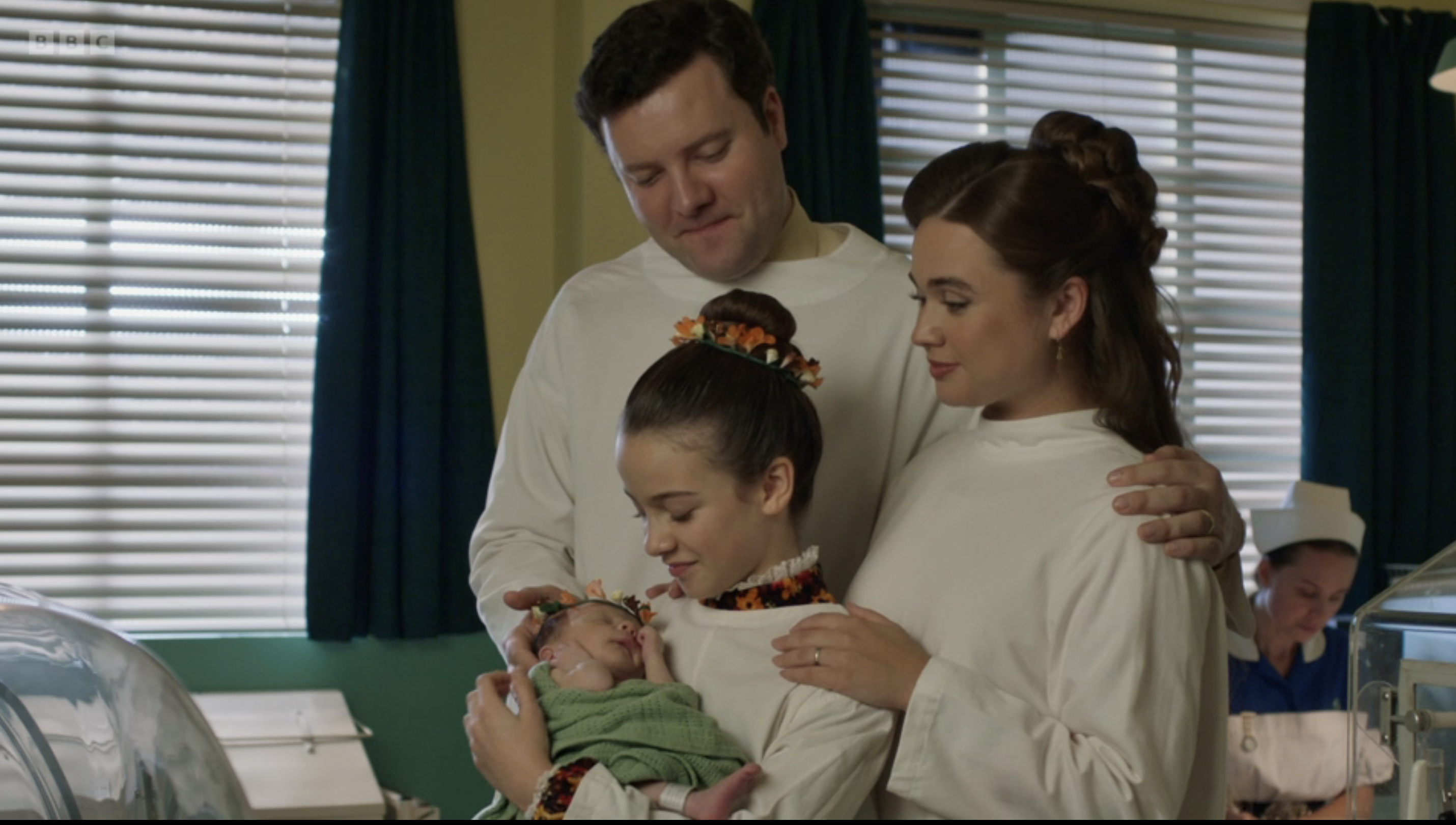
Despite being a deeply emotional moment in Nancy’s character progression, it wasn’t any more intense or impactful than other poignant narratives that played out during the current season.
Without a doubt, it’s hard to overlook the emotional spina bifida plotline that sparked the gradual romance between Rosalind (Natalie Quarry) and Cyril (Zephryn Taitte), the distressing racial discrimination incident experienced by Joyce (Renee Bailey), and the harrowing deaths of drug-addicted parents. All these events in the series finale seemed fitting, given what we had witnessed throughout the season.
And that alone proves just how extraordinary the show is – even after 13 years on air.
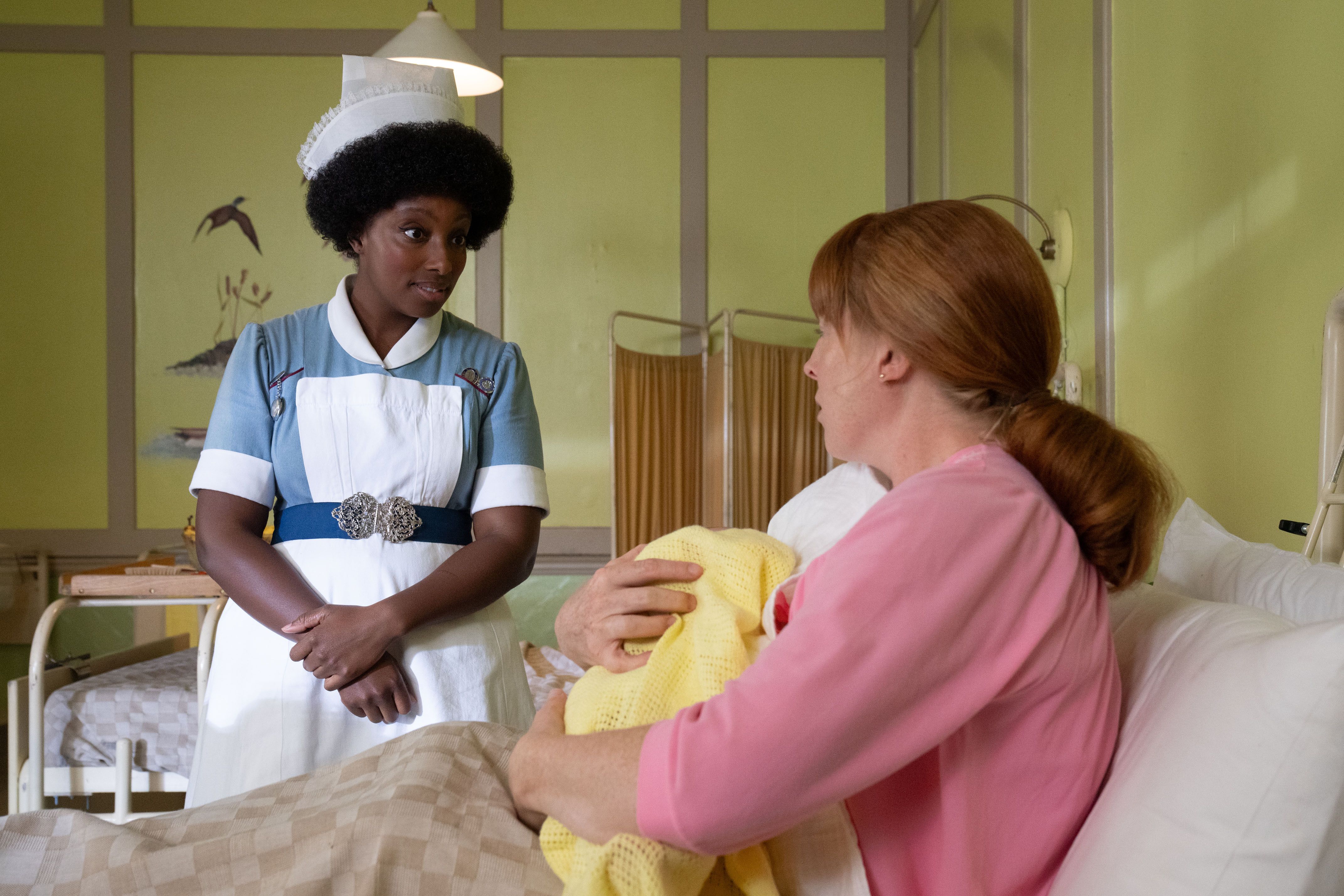
Call the Midwife consistently manages to encapsulate profound social insights within a comforting, easy-to-understand narrative. Unlike many other series that might start to lose their luster after a while, Call the Midwife has only grown stronger over time. Its latest season 14 is a testament to this, showcasing its peak performance throughout its long-standing run. The final episode of this season vividly demonstrates why it remains a standout in television history.
Despite not being as dramatic or suspenseful as the train crash in season 11 or the Christmas manhunt for Reggie, the BBC drama impressively juggles multiple experiences and emotions in each episode, showcasing the skill of its creative team.
Throughout the finale, Nancy’s narrative served as its foundation, but it’s hard to overlook the equally captivating journey of the newcomer, Sister Catherine (played by Molly Vevers), as she prepared to take her initial vows.
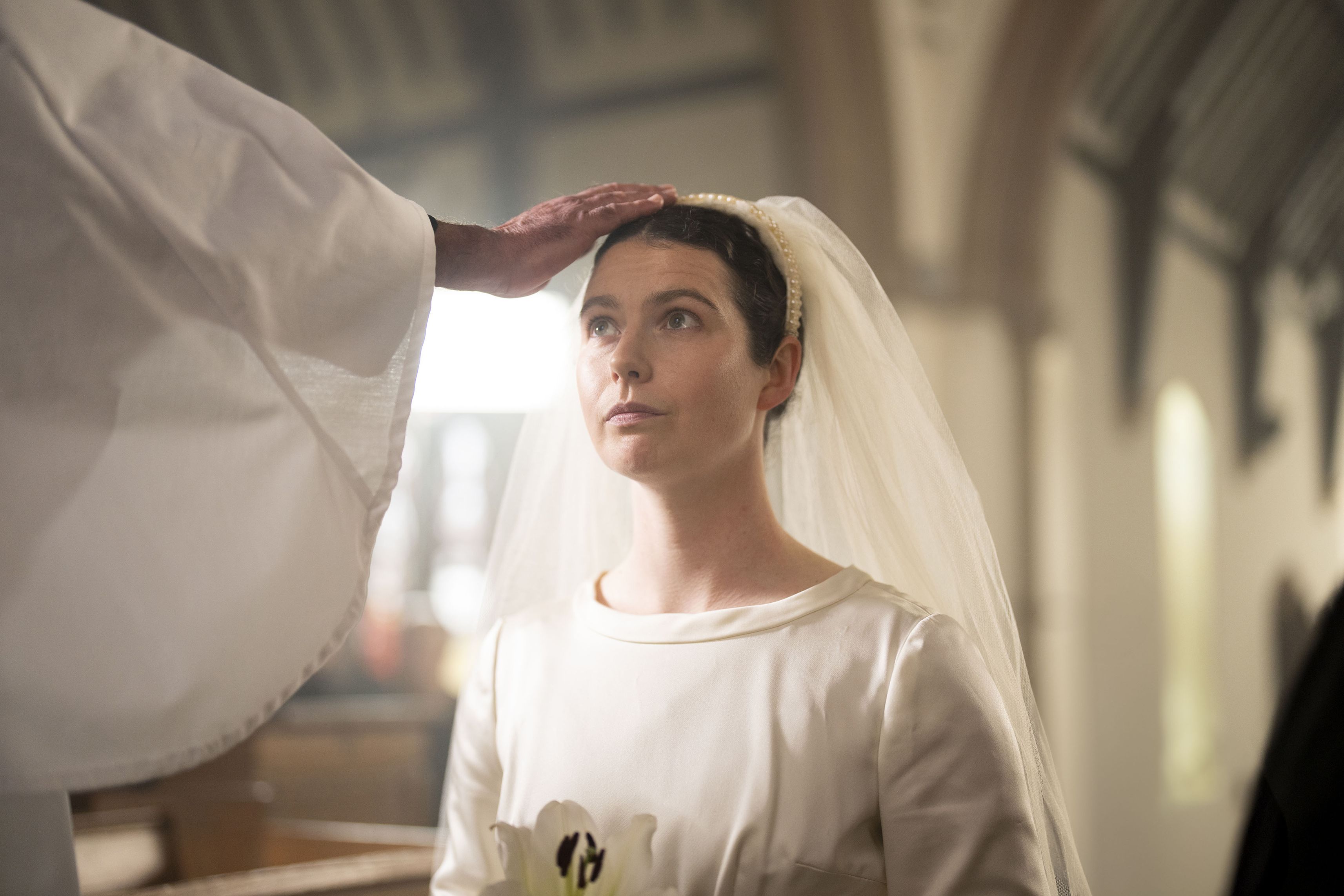
In a way that echoed Nancy’s special event, mine felt just as jubilant and festive. My inner turmoil about joining the order was eased when my sister appeared, defying the opposition of other family members, to stand by me. This act of love gave me hope during my challenges, empowering me to wholeheartedly embark on this new journey. (As a gamer narrating my personal experience)
On the show, there’s been no moment quite like Sister Catherine’s fervent and joyful prayer on the day of her first vows that encapsulated the essence of prayer, Christianity, and religion so beautifully, from her initial awakening to the climax of her ceremony.
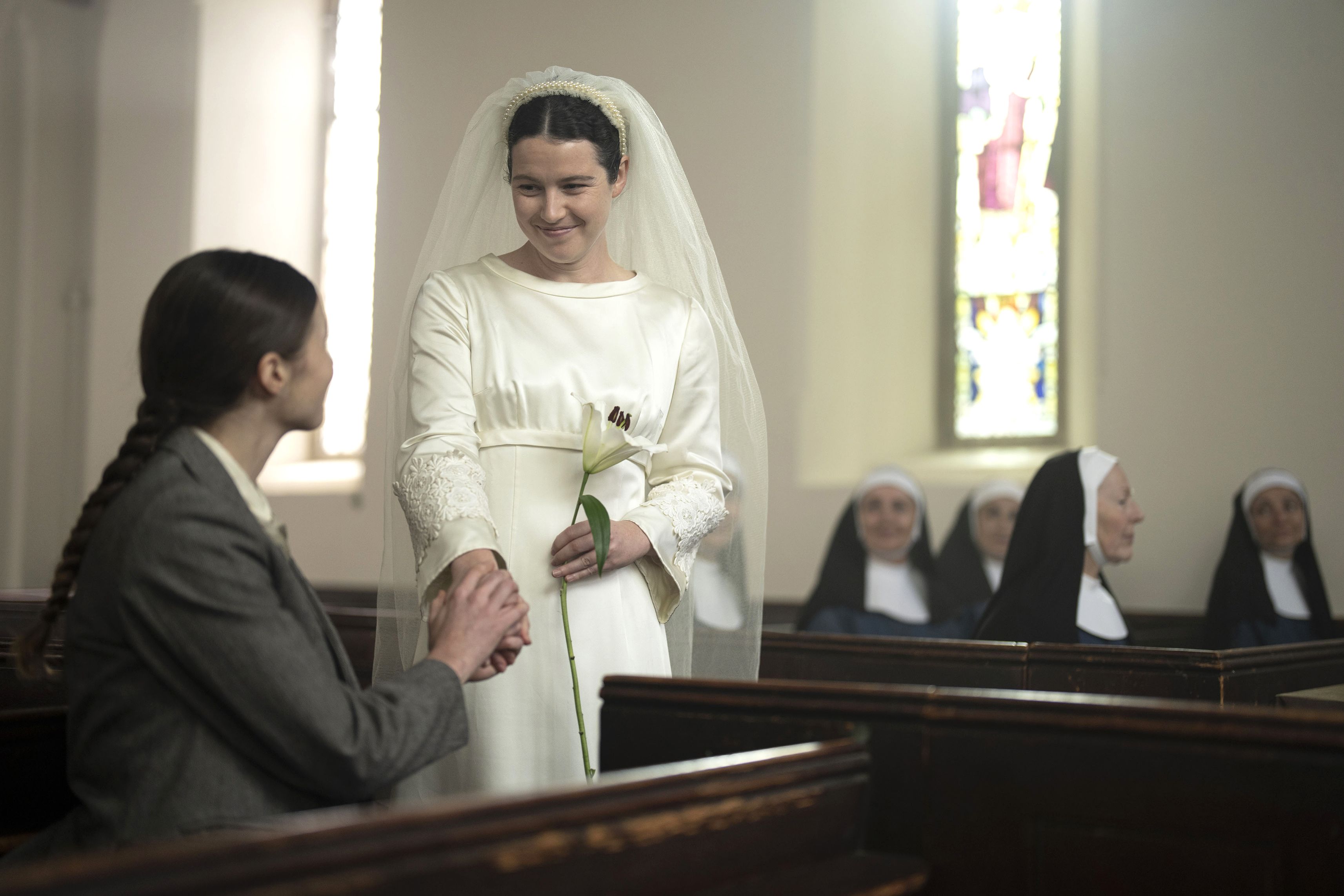
In the climax of the story, we have two distinct narratives to share, leaving little space for additional content. However, just like real life, there’s often hardship amidst joy, and Call the Midwife makes sure to include those challenging moments as well.
In the narrative, pivotal instances were found involving the pregnant teenager, whose story served as a bookend for the season. Returning to Poplar in episode one was Paula (Kitty Anderson), who gave birth and experienced intense fear and longing for reconciliation with her parents, particularly her mother. This emotional struggle was portrayed subtly, leading to a poignant, mixed-feeling ending.
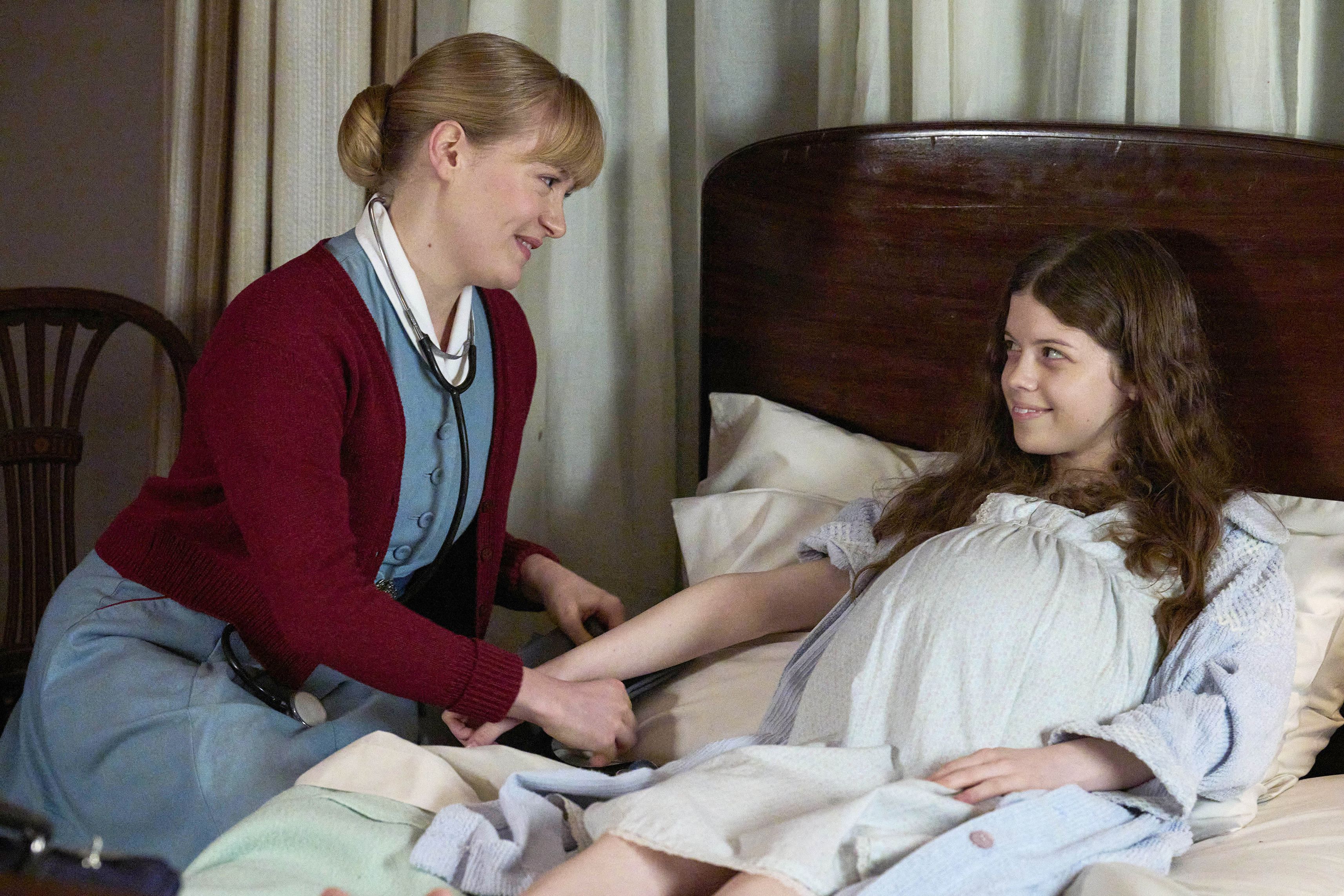
The television series incorporated disability sensitivity yet again, this time through the narrative of Reggie, not only during scenes where he encountered bullying on the streets but also in various other aspects of his storyline.
The situation started as he grappled with the sorrow of a friend’s departure and the sudden upheavals in his life. His worry escalated when the gift intended for Nancy was held up, and this persistent unease intensified further due to the discrimination he faced, ultimately resulting in a breakdown.

In contrast to the Christmas-themed narrative, this episode doesn’t revolve around his main story arc. Instead, it underscores that these events are ordinary aspects of his daily existence, similar to when he was supported by his community members.
In “Call the Midwife,” the magic lies in the skillful blend of lightness and darkness. Creator Heidi Thomas and her team masterfully deliver heart-wrenching, thought-provoking, and harrowing tales that tug at your heartstrings, yet the show never descends into despair or leaves viewers feeling drained and disheartened. Instead, it manages to maintain a sense of hopefulness and upliftment throughout.
Rather than being discouraging or depressing, it offers a positive and uplifting perspective. It consistently manages to fill you with inspiration, showcasing the immense power of human beings, particularly their ability to exhibit extraordinary acts of kindness and compassion.
Call the Midwife airs on BBC One and streams on BBC iPlayer.
Read more Call the Midwife news on our dedicated homepage
Read More
- Clash Royale Best Boss Bandit Champion decks
- Vampire’s Fall 2 redeem codes and how to use them (June 2025)
- World Eternal Online promo codes and how to use them (September 2025)
- Best Arena 9 Decks in Clast Royale
- How to find the Roaming Oak Tree in Heartopia
- Mobile Legends January 2026 Leaks: Upcoming new skins, heroes, events and more
- Solo Leveling Season 3 release date and details: “It may continue or it may not. Personally, I really hope that it does.”
- ATHENA: Blood Twins Hero Tier List
- How To Watch Tell Me Lies Season 3 Online And Stream The Hit Hulu Drama From Anywhere
- Sunday City: Life RolePlay redeem codes and how to use them (November 2025)
2025-03-03 21:19